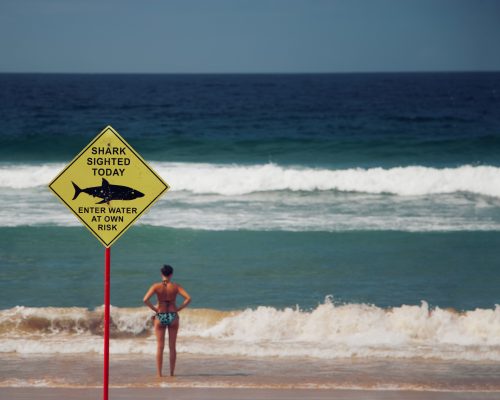Finance Column Rosa Sangiorgio
Demystifying Investment Mystery with Rosa Sangiorgio – New series to crack the investment code
I might be judged for saying our life runs on money. People might argue philosophically and spiritually on it but, essentially no one would deny the fact that the maximum part of our lives and its survival depends on the moola. For this eminent reason, we constantly search for ways to rake in as much as possible. It is reasonable to behave responsibly around capital through savings and investments.

Photo by Micheile Henderson on Unsplash
Over the years, the term investment matured from traditional options to more dynamic layers only to create diverse opportunities and specific outcomes. With the opportunities also ascended the confusion. No matter how you crunch the numbers, it seems an elusive strategy to create a rewarding investment plan.
Rosa Sangiorgio, an Independent Advisor, is an expert at scaling investment methods that generate positive, socially responsible and environmental welfare impact in addition to a financial return. During her 22 year career she worked for several European Financial institutions in the area of Wealth Management and Private Banking. Just before becoming independent, she was Head of Sustainability and Impact Investing in the Investment Management team of Credit Suisse until January 2020. Rosa is also a CEFA charterholder and TEDx speaker. Check out her speech here.

Rosa Sangiorgio
Through her bi-weekly series with Vivamost, Rosa wants to share with our readers her knowledge on how to invest from bottom up. She will further expound on the importance of sustainability and social impact through investments. Here is our conversation with her about Investment and our series.
1Please tell us about your journey from managing people and money in a big bank, to being independent? And, your intriguing TEDx experience?
I studied economy excited by the incredible energy on the trading floors of the film “Wall Street” with Michael Douglas. Unfortunately, already back then the reality was quite different, and the majority of trades were done through computers.
After the first disappointment, I got into the economy, demand and offer, the invisible hand by Adam Smith, and the role of banks as the bridge between people that have more money than they need and people that have great ideas but no money. I have worked my whole career in various banks, with different roles, but my meaning was always that bridge. After 22 years in big organizations, having understood both the positive (of the infrastructure, the brand and the comfort) of financial institutions and their limits (of people and processes that are actively resisting to change and slow to move), I have decided to continue my mission independently. If not now when?
With all the noise around sustainability, responsibility, ESG, impact, my TEDx talk was a medium of bringing meaning to those words and help people understand that we all are protagonists and can make a difference by using our resources to change the world in the direction we want the world to change.

Rosa at TedEx
2How is impact investing different from other investments?
Every investment has an impact, positive or negative. When deciding how to invest we can consider how our investments will impact the environment and the society, or we can ignore it. This is the difference. We may define “impact investing” as those investments that produce a positive impact alongside market returns. If the information about impact is available, who would ever make a decision without considering it?
In reality, researching on how to determine the positive or negative impact has a cost, materially calculating the impact has a cost, changing existing processes to include impact considerations has a cost. This is the reason why impact investing is not yet the “norm”, but we are getting there through consumer awareness and regulators awakening.

Photo by 🇨🇭 Claudio Schwarz | @purzlbaum on Unsplash
3Does one need to hire a dedicated financial advisor to get higher returns from the investments? For a common person, is investing really a far-reaching grape?
Why are you looking for “higher returns”, and what do those returns mean for you? If one understands what he/she is looking for, the process of investing becomes easier. Investing (as any other human activity ) requires time and commitment. You need to understand the market mechanisms and be updated on all the news.
A bit like voting. You need to know which is the political system in your country, how to vote, plus you need to be aware of the problems/solutions your communities have, who are the candidates, and then decide whom to trust. Some individuals follow politics customarily, have their own opinion and vote accordingly. Some have only a notion of current affairs and end up voting a political party purely because of an ideal, even if they don’t know what they are proposing at the time. Some don’t care about politics and just trust their partner, their friend, someone on TV, and vote as they say. Some don’t vote at all.
It’s not rocket science, but needs time and dedication. Understanding how it works is important both if you want to invest directly or delegate it to your financial advisor.
4What can our readers learn from your articles? Will they be able to invest independently?
They will learn the meaning of investing, feel more comfortable with the jargon, how to give the correct instructions to their advisors, how to control and trust them, and eventually how to invest directly. We will start with the theory (to demystify the jargon), and then move on to more practical topics. Finally, we will open the space to your questions to cover those topics that scare you.

Photo by 🇨🇭 Claudio Schwarz | @purzlbaum on Unsplash
5How should one invest during this uncertain period? Or, should one be investing at all when the market is on the verge of a disastrous fail?
The future is by definition uncertain, no one knows what will happen, no one has the fortune-telling magical crystal sphere. Similarly, how would you know if a market is “on the verge” of a fail? No one knows. Economists, politicians, bankers can try to predict based on their experience and knowledge, but no one actually knows. Trying to “time the market” is one of the useless activities an investor can get in. It simply doesn’t work. The best strategy is to diversify and invest long term. In the long term most of the investments will bring results, and those that won’t will be compensated by the diversification.





